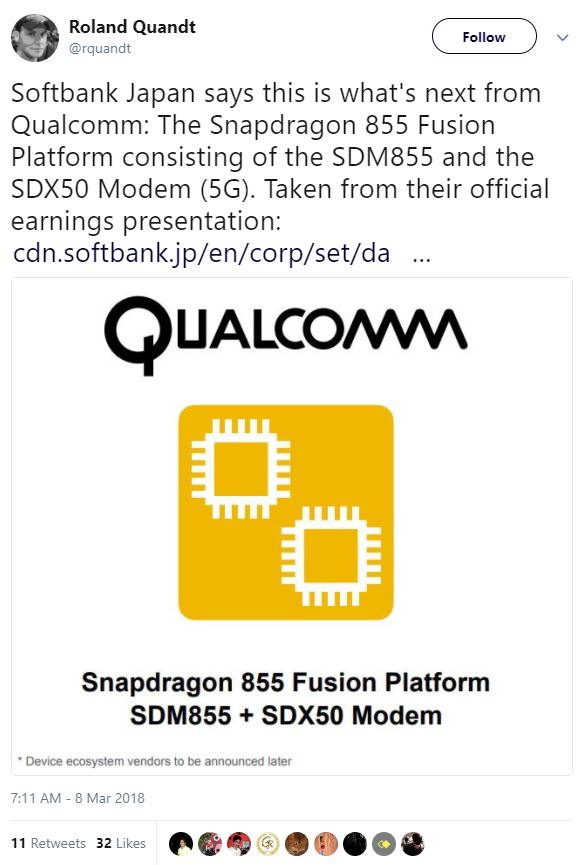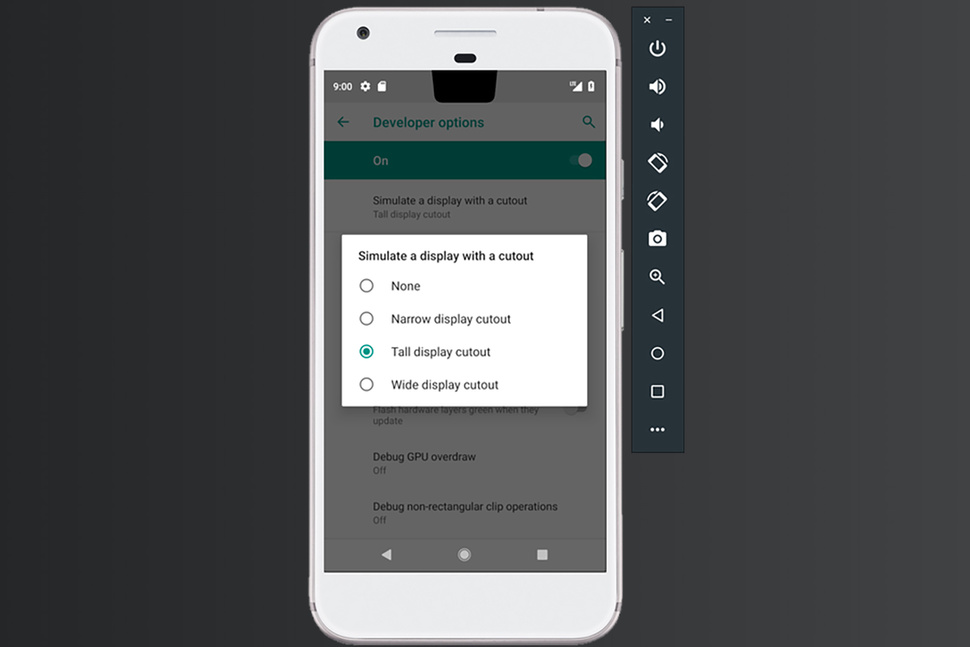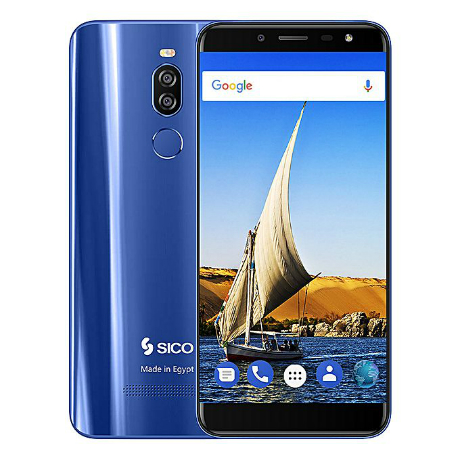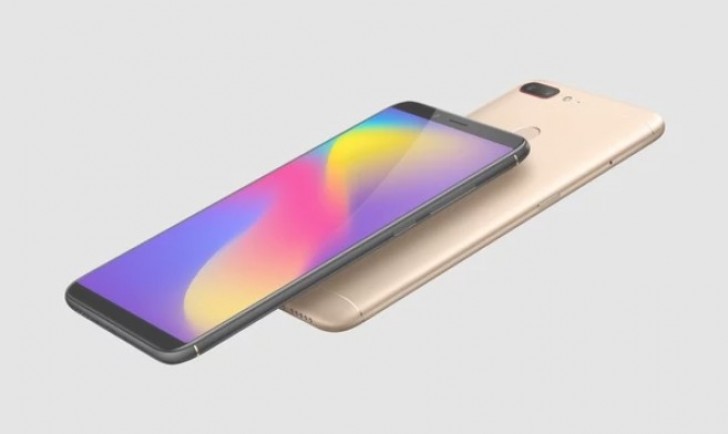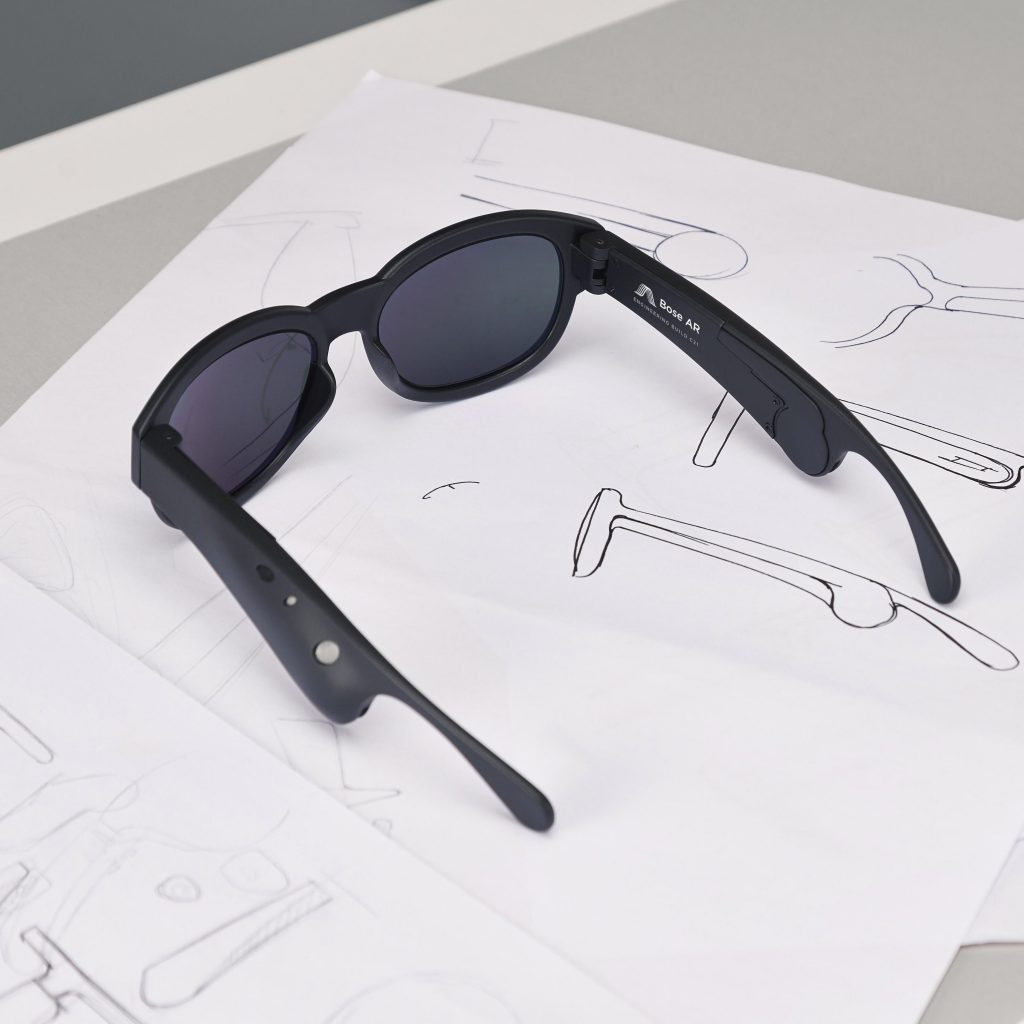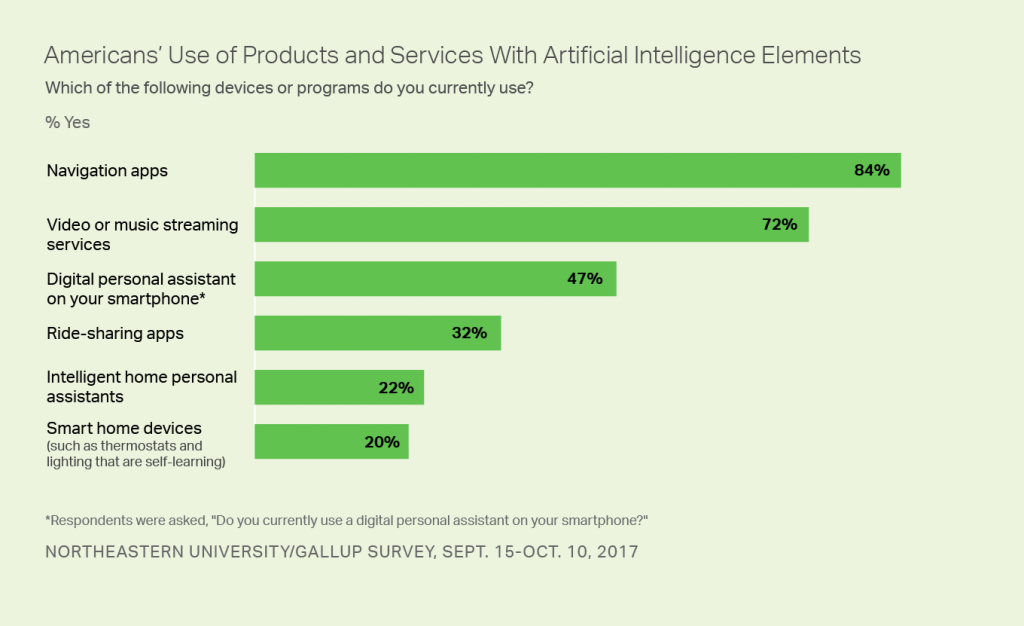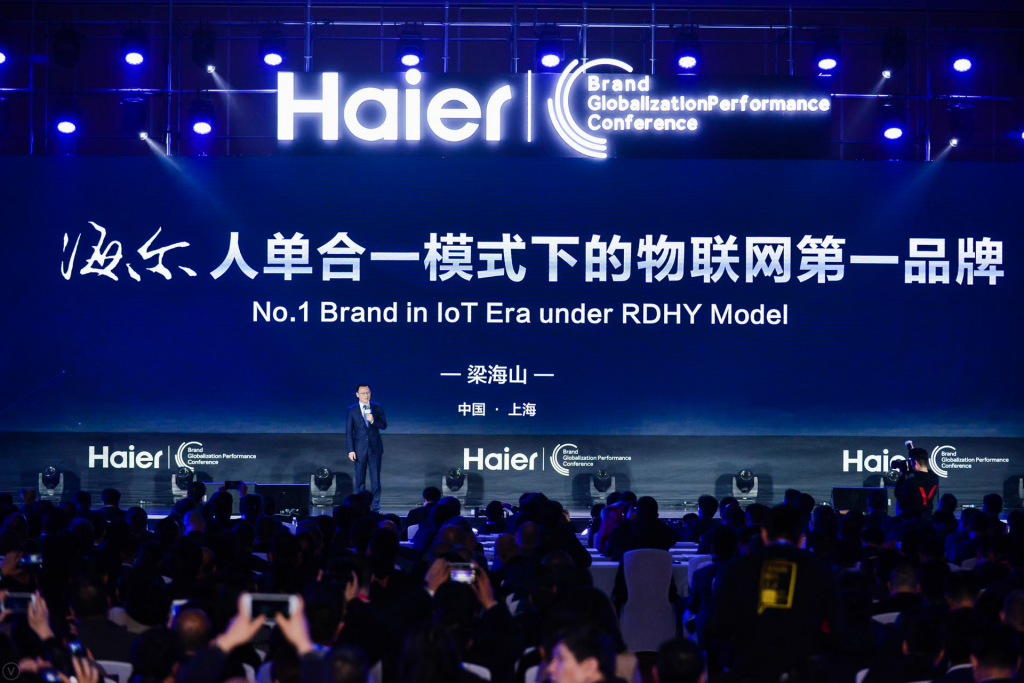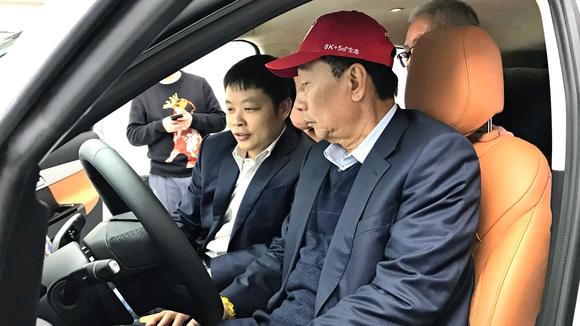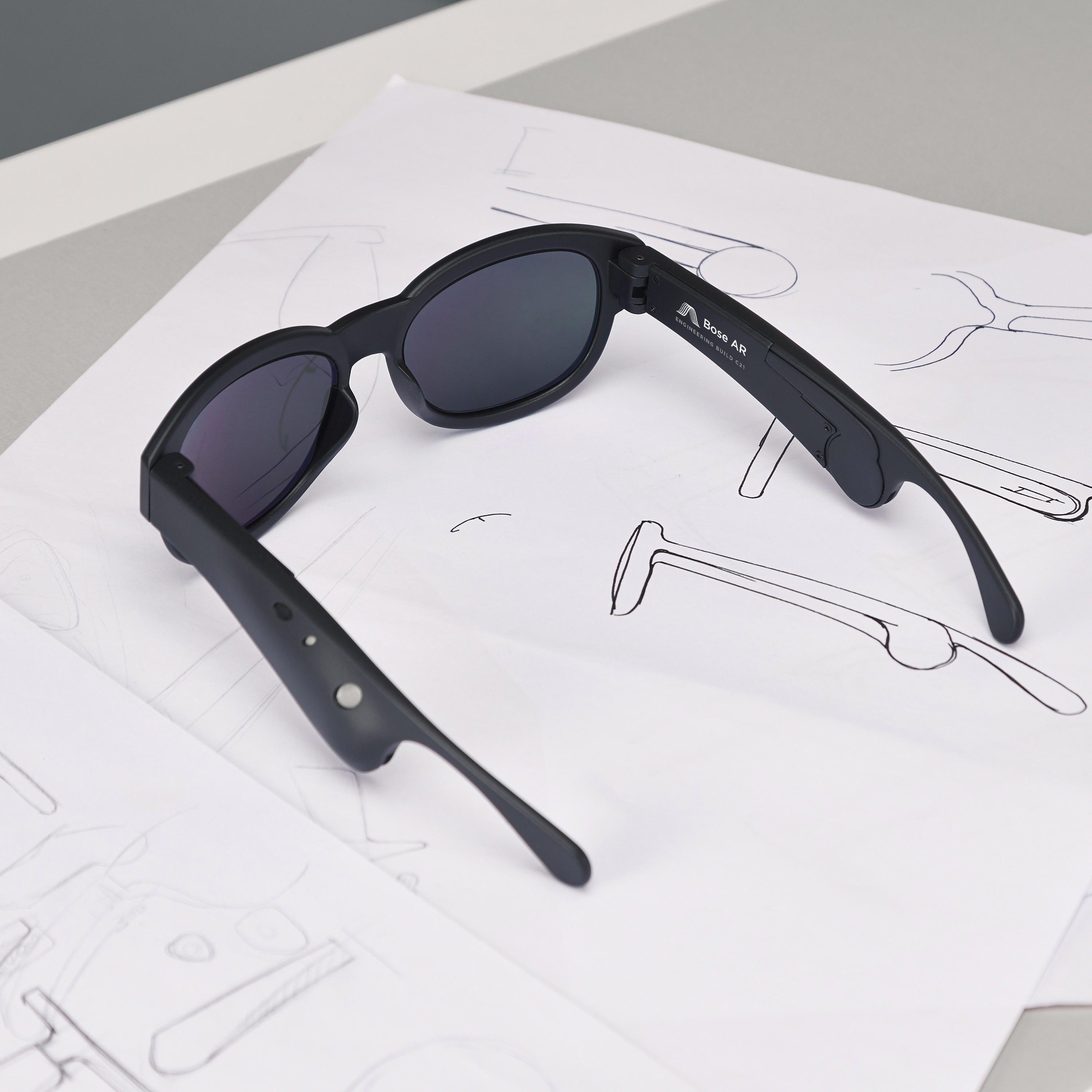
03-10: Huawei Kirin 670 reportedly to equip with NPU; Qualcomm SD855 Fusion Platform is leaked; Samsung Galaxy Note 9 reportedly will not adopt under-display fingerprint; etc.
Chipsets
The latest earnings report from Softbank has just confirmed the name of Qualcomm’s next-generation flagship smartphone chipset, Snapdragon 855 Fusion Platform. It is going to be accompanied by the 5G-capable Snapdragon X50 modem. (Android Headlines, WCCFTech, Gizmo China, SoftBank, Sohu, EDN China)
The upcoming Kirin 670 chip from Huawei’s semiconductor subsidiary HiSilicon will feature a neural processing unit (NPU) meant to enable on-device artificial intelligence computing on Android mid-rangers. (Android Headlines, XDA-Developers, Gizmo China, HQEW, OfWeek, CNMO, My Drivers)
Touch Display
Apple is allegedly examining new possibilities for OLED technology to deal with the notch for iPhone in 2019. Ideas include drilling holes into OLED panels, or using so-called “Black Matrix (BM)” areas within the displays themselves. (Apple Insider, ET News, My Drivers, Sina)
Biometrics
Goodix Technology has acquired cellular IoT company CommSolid to accelerate the development of its System-on-Chips (SoCs) for secure, low power wireless solutions. The CEO David Zhang indicates that it will commercialize the company’s 2nd-generation optical under-display fingerprint technology on a large scale by top-tier global smartphone brands. The company will also launch its own 3D recognition technology within 2018. (Laoyaoba, Sina, XCN News, STCN, PR Newswire, Biometric Update, Android Headlines)
KGI analyst Ming-Chi Kuo believes the under-display fingerprint recognition technology will not be ready in time for an expected release later in 2018 for Samsung Galaxy Note 9. Kuo says Samsung will most likely put the anticipated feature on ice as both ultrasonic and optical solutions do not meet the company’s standards. (Apple Insider, OfWeek, Sohu, My Drivers)
Phones
A California federal judge has trimmed a proposed class action accusing Google and Huawei Device USA of manufacturing defective Google Nexus 6P smartphones that do not properly start up or maintain their battery life. (Android Headlines, Law 360)
Samsung Executive Vice President Lee Don-Tae indicates that the company is still targeting “seamlessness and cohesiveness” while designing its products. (Fortune, Android Headlines)
Google has announced that the next major version of its mobile operating system, Android P, is available for developers to try. It mostly focused on key features as well as app-building tools for developers. (Google, Pocket-Lint, CN Beta)
Snap is reportedly laying off about 100 engineers — nearly 10% of the team. The company has seen smaller rounds of layoffs in recent months in its marketing, recruiting and content divisions. (The Verge, CNBC, Cheddar, iFeng)
BlackBerry has signed a technology and brand licensing deal for “BlackBerry Secure” with Swiss consumer electronics maker, Punkt Tronics AG. The new agreement enables Punkt to bring to market a range of highly-secure products, which will embed BlackBerry cybersecurity technology, be certified as BlackBerry Secure. (Ubergizmo, BlackBerry)
As the market matured and growth is slowing down, consumer’s need of changing their phones is weak, the offline channels, including retailers and distributors are impacted. In 3rd, 4th-tier cities, a lot of shops are closed. In 2018, expects to see 50% of offline retailers being eliminated, some 80% of brand shops are closed. (Xuehua, XCN News, CN Beta, Caijing, article, 36Kr)
Huawei is selling a new smartphone in the United States priced at USD229. The government is warning to think twice before buying it on Amazon or Best Buy. In Feb 2018, leaders from the CIA, FBI and NSA, and the director of national intelligence, said private citizens in the U.S. shouldn’t buy phones from Chinese smartphone makers including Huawei and ZTE. (CN Beta, CNBC)
Lenovo officially claims that while some “employment reductions” took place in Chicago over the course in Mar 2018, they have not affected half of the firm’s local workforce as some sources previously claimed and are a planned result of the international resource action Lenovo announced late last year with the goal of reducing under 2% of its global workforce. (9to5Google, Android Central, Android Headlines, CNFOL, Sina, Android Headlines)
Egyptian technology company Silicons Industries Company (SICO) has officially launched the first locally-manufactured Egyptian smartphone Nile X with EGP400M investments nationwide. About 55% of the handset is assembled in its factory in Assiut and the rest is manufactured in China. (Quartz, All Africa, Ahram Online, CN Beta)
OPPO and vivo are reportedly scaling down the distributors and retailers selling their phones in a turnaround of their strategy of reaching even the smallest towns and cities as both cut spending and focus on generating returns. IDC research director Navkendar Singh has indicated that they have reduced channel margins and retail spends and now they’re going for more depth than width of distribution. (CN Beta, Economic Times)
LG X4 is announced in South Korea – 5.3” HD, Qualcomm Snapdragon 425, rear 8MP + front 5MP, 2GB+16GB, Android 7.1.2, 3000mAh, KRW297,000 (USD275). (GizChina, GSM Arena, LG, Android Headlines)
ZTE nubia N3 is officially announced – 5.99” 2160×1080 IPS, Qualcomm Snapdragon 625, rear dual + front 16MP PDAF, 4GB+64GB, Android 7.1, 5000mAh. (GSM Arena, GizChina, Gizmo China)
Wearables
The Plantation, Florida-based augmented reality (AR) startup Magic Leap has announced that it has raised USD461M from the Kingdom of Saudi Arabia’s sovereign investment arm, The Public Investment Fund. The Saudi Arabian fund contributed USD400M of the raise, with “new investors” fronting the rest, the company said. (Bloomberg, TechCrunch, Tencent, 163)
Barclays analysts believe that demand is strong for the AirPods, with Apple expected to ship around 30M units in 2018. They do not acknowledge anything new on the AirPods front before 2019, off-handedly suggesting that Apple could cut the price of AirPods in 2Q18 in the interim between hardware updates. (9to5Macs, CN Beta, WCCFTech)
Bose has announced an AR platform, and set up a USD50M venture fund to support it, which is about audio, not video. Bose is calling it the first “audio augmented platform” and says its Bose AR prototype – “glasses to hear” — is the future of mobile sound. (Android Headlines, Bose, The Verge, CNET, Huanqiu)
Internet of Things
According to the latest survey findings from Gallup and Northeastern University, nearly 9 in 10 Americans (85%) say they currently use at least 1 of 6 devices, programs or services that feature elements of artificial intelligence (AI). Use of these products ranges from 84% of U.S. adults using navigation applications to 20% using smart home devices such as self-learning thermostats and lighting. (Gallup, press, Android Headlines, Qianzhan)
Haier has officially announced to become one of the members of Open Invention Network (OIN), becoming the first and only vendor in the home appliance industry that joins the OIN. Haier will gain OIN’s 1200 Linux core development patent usage, which will provide protection for Haier’s IoT platform U+ Linux development intellectual properties. (China Byte, Laoyaoba)
Founded in 2014, Xiaopeng (Xpeng) now has around 1,000 employees working at its offices in Guangzhou Science City. The company’s first vehicle, a compact car, had a limited release in Oct 2017. Xpeng plans to complete a factory by mid-2019 that can produce 200,000 vehicles a year, and aims to be “the leader in this new industry,” according to the president Xia Heng. Alibaba, Baidu and Tencent have invested heavily in local electric-vehicle startups. (Asia Nikkei, Laoyaoba)
